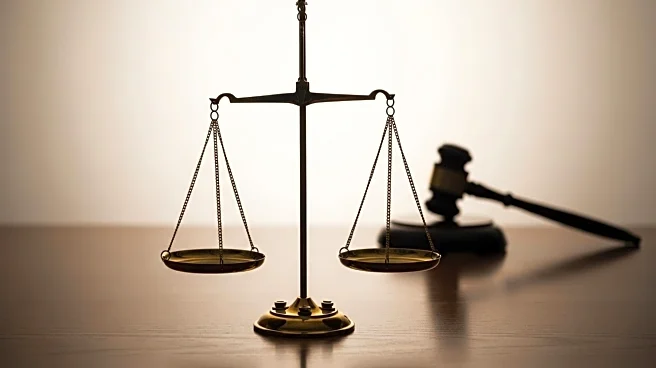What's Happening?
Former Supreme Court Justice Anthony Kennedy has released a memoir titled 'Life, Law & Liberty,' where he discusses his pivotal role in shaping significant legal and cultural issues during his tenure. Kennedy, who served on the Supreme Court, was often the swing vote in landmark cases involving gun ownership, abortion rights, and same-sex marriage. In an interview with Erin Moriarty, Kennedy expressed concerns about the current state of the Supreme Court, particularly its tendency to reverse established precedents. He also highlighted the growing lack of civility and ethics in public debates, which he believes poses a threat to democracy.
Why It's Important?
Justice Kennedy's reflections are significant as they come from a key figure who influenced major legal decisions in the United States. His concerns about the Supreme Court's direction and the erosion of civility in public discourse underscore ongoing debates about judicial independence and the politicization of the judiciary. These issues have profound implications for U.S. politics and society, as they affect public trust in legal institutions and the stability of democratic processes. Kennedy's insights may influence public opinion and contribute to discussions on how to preserve the integrity of the judiciary and democratic norms.
What's Next?
Kennedy's observations may prompt further dialogue among legal scholars, policymakers, and the public about the role of the Supreme Court and the importance of maintaining ethical standards in political discourse. As debates continue over the court's decisions and its impact on American society, stakeholders may seek ways to address these challenges, potentially leading to calls for reforms or initiatives to promote civility and ethical conduct in public debates.
Beyond the Headlines
Kennedy's memoir and interview highlight deeper issues related to the balance between judicial precedent and evolving societal values. The tension between maintaining legal consistency and adapting to cultural shifts is a recurring theme in U.S. legal history. His comments may also spark discussions on the ethical responsibilities of public figures and institutions in fostering a healthy democratic environment.










